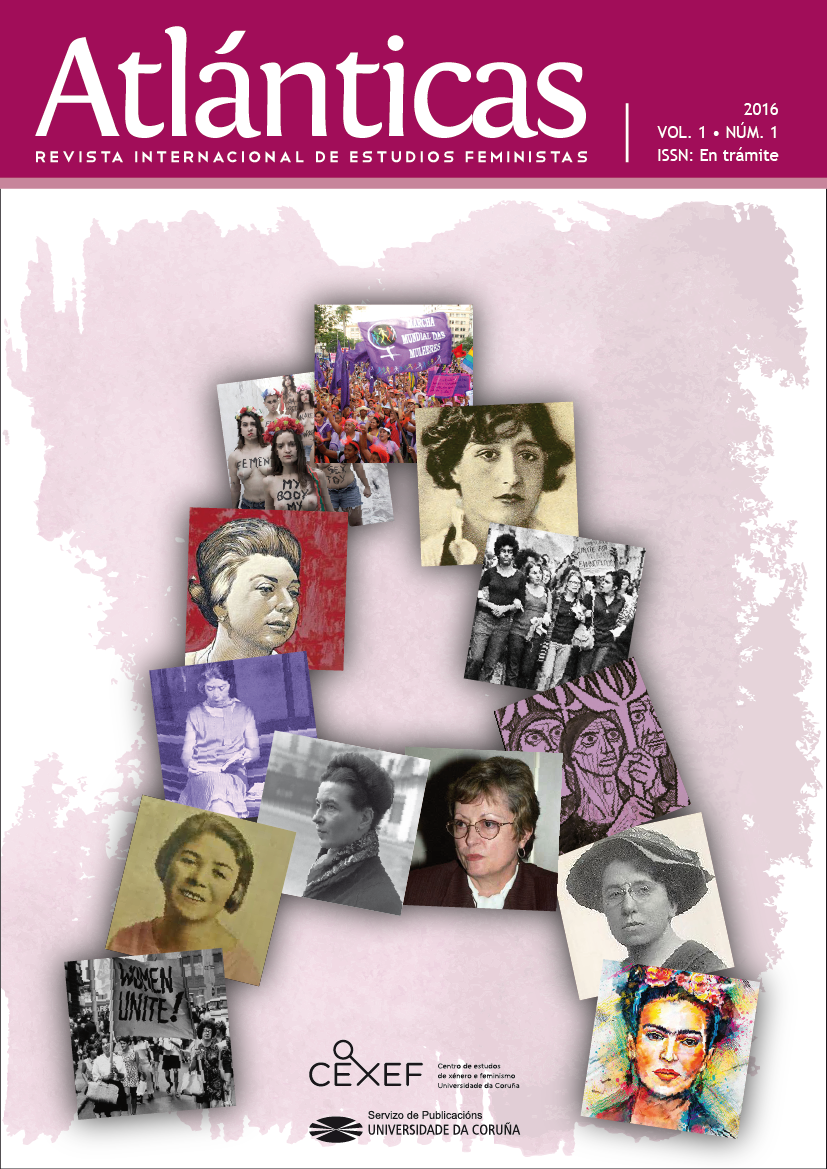Gender transformative potentiality of public policies: the case of parental leave in Europe
Main Article Content
Abstract
This article tackles some appearances on how the 'social norms or expectations' built from the rooting in the sexual differentiation can be encouraged or diluted according what is the orientation of the public policies, that is the importance to consider the potentiality gender-transformative of the public policy, it does mean taking in account the gender impact that it will have on the 'social norm' based in the sexual division of the labor.
The article collects a feminist approach to the comparative analysis of the (maternity, paternity and parental) leaves system in 27 European countries, like a piece of public policies to promote equity by uses of time between women and men, and implications of the attention and the care after the birth of a baby. Evidences found show that not all the parental leave policy have potentiality enough to influence in the sexual division of the labor in the same direction; there are combinations of normative elements of the parental leave systems that promote changes the gender roles and there are other combinations based on the gender social norms, being able to reinforce them even more.
Keywords:
Downloads
Article Details
References
Bettio, Francesca & Verashchagina, Alina (Ed.) (2008). Frontiers in the Economics of Gender. Abingdon: Routledge.
Brighouse, Harry & Olin Wright, Erik (2008). Strong Gender Egalitarianism. Politics & Society, 36(3), 360-372. doi:10.1177/0032329208320566
Castro García, Carmen (2015). Modelos de Bienestar, Igualdad de Genero y Permisos por Nacimiento en un contexto de crisis del Modelo Social Europeo. TESEO. Tesis Doctoral. Universidad Pablo de Olavide, Sevilla, España.
Castro García, Carmen (2016). Los permisos por nacimiento y su potencial transformador para la implicación paterna en los cuidados infantiles. En Lina Gálvez Muñoz (dir) La Economía de los Cuidados (213-236). Sevilla: De Culturas.
Castro-García, Carmen & Pazos-Moran, María (2016). Parental Leave Policy and Gender Equality in Europe. Feminist Economics, 22(3), 51-73. doi: 10.1080/13545701.2015.1082033
Castro García, Carmen & Pazos Morán, María (2012). Permisos por nacimiento e igualdad de género: Como diseñar los permisos de maternidad, paternidad y parentales para conseguir un comportamiento corresponsable?. Papeles de trabajo 9/2012.
Madrid: Instituto de Estudios Fiscales.
Castro García, Carmen & Pazos Morán, María (2008). Los permisos parentales: una critica feminista de las tendencias actuales en Europa. En María Pazos Morán(Ed.) Economía e Igualdad de Género: retos para la Hacienda Pública en el siglo XXI (185-222). Madrid: Instituto de Estudios Fiscales.
Comisión Europea (2013). Informe de la Comisión al Consejo, al Parlamento Europeo, al Comité Económico y Social Europeo y al Comité de las Regiones sobre la Igualdad entre mujeres y hombres.
Ciccia, Rosella & Verloo, Mieke (2012). Parental leave regulations and the persistence of the male breadwinner model: Using fuzzy-set ideal type analysis to assess gender equality in an enlarged Europe. Journal of European Social Policy, 22 (5), 507-528. doi: 10.1177/0958928712456576
Eurostat (2010) Social Protection Expenditure and Receipts. EU, Iceland Faroe Island and Norway. Statistical report. Luxembourg: Eurostat.
Fraser Nancy (1994). After the Family Wage: Gender Equity and the Welfare State. Political Theory, 22(4), 591-618.
Fraser, Nancy (2013). Fortunes of Feminism. From State-Managed Capitalism to Neoliberal Crisis. London: VersoBooks.
Gálvez Muñoz, Lina (2013).Una lectura feminista del austericidio. Revista de Economía Crítica, 15, 80-110.
Gálvez Muñoz, Lina & Rodríguez-Modroño, Paula (2011) La desigualdad de género en las crisis económicas. Investigaciones Feministas, 2, 113-132. doi: http://dx.doi.org/10.5209/rev_INFE.2011.v2.38607.
Gálvez-Muñoz, Lina, Rodríguez-Modroño, Paula & Addabbo, Tindara (2013). The impact of European Union austerity policy on women's work in Southern Europe. Centro di Analisi delle Politiche Pubbliche (CAPP) Paper nº. 108. Modena: Universitá di Modena e Reggio Emilia. Recuperado de http://155.185.68.2/campusone/web_dep/CappPaper/Capp_p108.pdf
González, María José & Jurado Guerrero, Teresa(2009). ¿Cuándo se implican los hombres en las tareas domésticas? Un análisis de la Encuesta de Empleo del Tiempo. Panorama Social, 10, 65-81.
Moss, Peter (2013). International Review of Leave Policies and Related Research. Institute of Education University of London. Recuperado en http://www.leavenetwork.org/fileadmin/Leavenetwork/Annual_reviews/2013_annual_review.pdf
Pateman, Carole (1989). The Disorder of Women: Democracy, Feminism, and Political Theory. Stanford: Stanford University Press.
Pazos Morán, María (2013). Desiguales por ley. Las políticas públicas contra la desigualdad de género. Madrid: Libros de la Catarata.
Scott, Joan (1988). Deconstructing Equality-versus-Difference: Or, the Uses of Poststructuralist Theory for Feminism. Feminist Studies, 14(1), 32–50.
Scott, Joan (1990). Deconstructing Equality-versus Difference: Or, the Uses of Poststructuralist Theory for Feminism. En M. Hirch & E. Fox Keller (Ed.) Conflict in Feminism (pp. 134-148). New York & Londres: Routledge.
Ray, Rebecca, Gornick, Janet C. & Schmitt, John (2008). Parental Leave Policies in 21 Countries. Assesing Generosity and Gender Equality. Washington: Center for Economic and Policy Research. Washington. Recuperado en http://www.lisdatacenter.org/wp-content/uploads/parent-leave-report1.pdf
Ray, Rebecca, Gornick, Janet C. & Schmitt, John (2010). Who cares? Assessing generosity and gender equality in parental leave policy designs in 21 countries. Journal of European Social Policy, 20(3), 196-216. doi: 10.1177/0958928710364434
Wennemo Lanninger, Alma & Sundstrom, Marianne (2014). Part-Time Work in the Nordic Region. Part-time work, gender and economic distribution in the Nordic countries. Copenhagen: Nordic Council of Ministers. doi: http://dx.doi.org/10.6027/TN2014-503. Recuperado de http://www.nikk.no/wp-content/uploads/NIKKpub_deltid1_temanord.pdf

